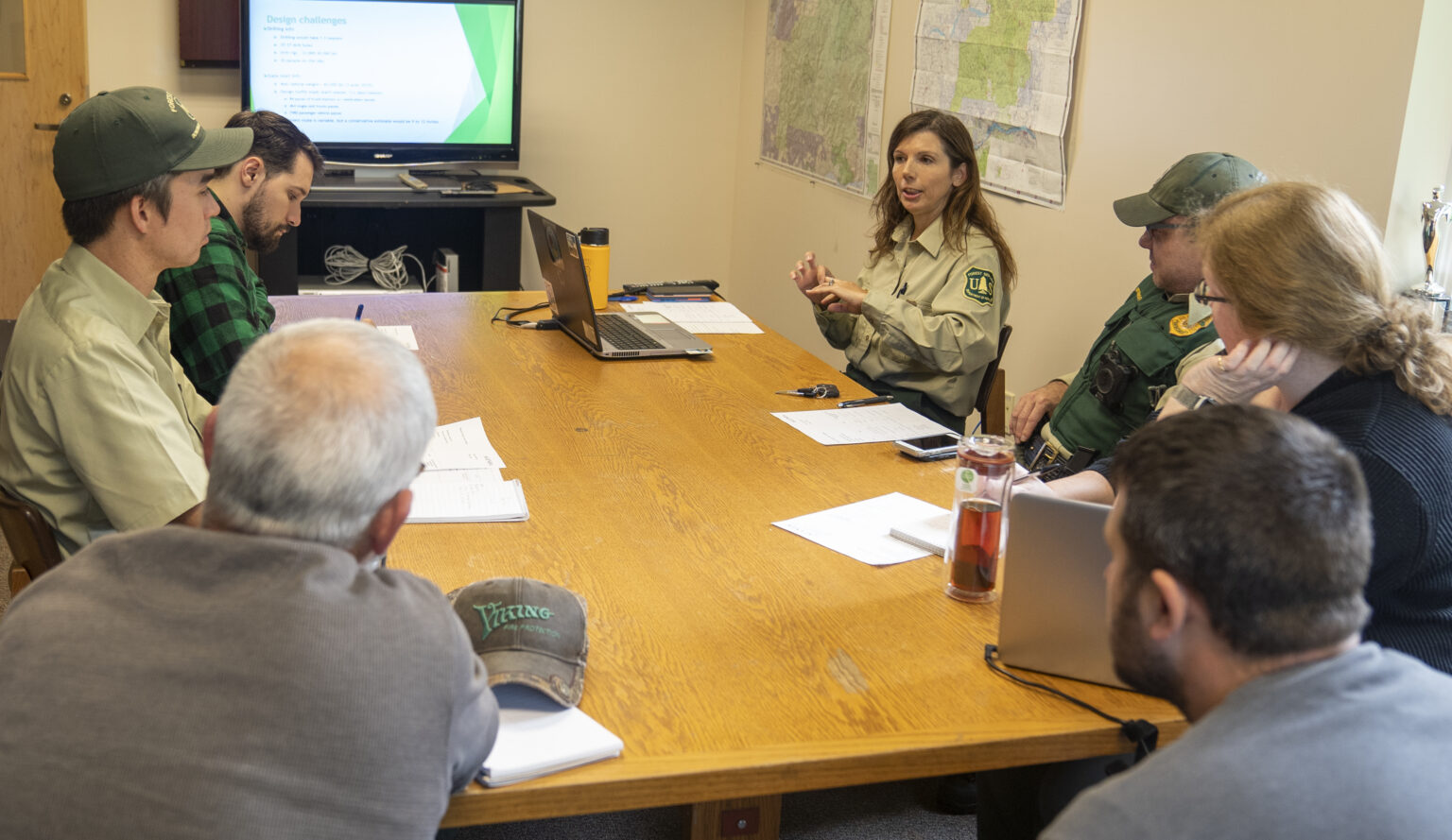Capitol Chatter: Sen. Peter Courtney reflects on changing government
Published 5:36 pm Thursday, August 5, 2021

- Capital Chatter square logo
Want to improve Oregon government? Elect some Democratic legislators in Eastern Oregon. Elect more Republicans in the Portland metro area.
So says Senate President Peter Courtney, D-Salem. When he first entered the Oregon House in 1981, its rolls included Democrats from Eastern Oregon and the south coast. Republicans represented parts of Beaverton, Portland and Eugene.
Trending
Unless Oregonians are represented by people like them, Courtney said, it’s hard to create the feeling that the Legislature cares about them. However, Oregon’s geographic divide has widened through the decades.
“Clearly the legislative body that I was in in ‘81 is not there today. It’s a different body and it will be. It’s a different generation of legislators. The process and the institution has changed since we have annual sessions. I think the advocacy community is much more active now and more controlling than it was,” Courtney said.
“I don’t think anywhere the process or institution is revered as much as it was, I really don’t, whether Congress or whether it’s the Legislature.”
Courtney, 78, is the longest-serving presiding officer in Oregon history. He is a moderate amid a Senate Democratic Caucus that is increasingly liberal and tied to urban Oregon.
With the Oregon Capitol now reopened to the public, Courtney and I sat down this week in the basement press room for a wide-ranging conversation. He reflected on this year’s legislative session, rued the expanding role of the executive branch, channeled former Republican Sen. Bob Dole of Kansas about societal changes, lamented a “me first” attitude in American society and decried the recent losing streak by his beloved Boston Red Sox.
This year’s Legislature might rank among the most fractured in state history. Courtney described the session as yielding wins for Democrats but not victories for the legislative process.
Trending
Statistically, it is accurate to say that most bills passed on a bipartisan basis. That is because most are run-of-the-mill measures. Senate Bill 762, on wildfire prevention and recovery, was the rare contentious legislation that in the end gained broad support. Meanwhile, many Republican bills were sidelined without getting to a vote.
Senate Democrats often were divided internally between moderates and the increasingly influential progressives. Sens. Brian Boquist of Dallas and Art Robinson of Cave Junction broke from Republicans and formed the Independent Caucus. The remaining Senate Republicans also were split, with some favoring walkouts and others not. If Courtney worked collaboratively with Senate Republican Leader Fred Girod of Lyons, each would run into trouble with one side of their caucus.
The Oregon House had its own issues.
Going into the 2021 session, Courtney recognized Senate Republicans’ lingering anger over a lot of things. Still, he was rattled when they didn’t show up one day for a floor session, depriving the Senate of a quorum to conduct business.
“I then realized everything I worried about could happen. And the Democrats in my caucus, many of them didn’t care. They just said, ‘We’ll do this and we’ll do that.’ Well, you couldn’t do it because they wouldn’t be there to let you do it. i.e., put a ballot measure on getting rid of the quorum,” he said.
Courtney is all about team; and to him, the team is the full Legislature. He mourns the lack of loyalty to the team, whether in college sports or politics, and the accompanying decline in respect for traditional institutions.
“If you’re more important than the team, then the thing comes apart. And right now, the team doesn’t mean anything except ‘me.’ Every part of your life, you’re part of a team, even your marriage you’re part of a team. And if you don’t approach it that way, then in effect you destroy the most important things in the way we live and how our society needs to function,” he said.
“Increasingly, there’s no loyalty to the team. There’s no respect. Many people think, ‘Well, I really don’t need the team, I am so significant, my ideas are so good or I’ve got so much talent.’ It’s very dangerous.”
As examples of past legislative leadership, Courtney cited Democrats Vera Katz and Hardy Myers of Portland and Republicans Nancy Ryles of the Beaverton area, Paul Hanneman of Cloverdale and Ray Baum of La Grande.
However, now Courtney foresees the executive branch – the governor – continuing to amass power through executive orders and strong agency heads but at the expense of the legislative branch.
Here’s what the loquacious legislator said on other topics:
Swamped by crises: This year’s Legislature dealt with wildfires, pandemic, December’s security breach of the Oregon Capitol and other crises. Sen. Girod was among those who lost homes in the Santiam Canyon fires.
“We were constantly responding to crisis – crisis after crisis after crisis – and we didn’t have any experience in it,” Courtney said. “Even a person like me didn’t have any experience in how you deal with a fire that’s ravaged through a canyon, taken the home of one of the leading legislators, killed his cats, destroyed all his past because of the pictures and everything.
“He and his wife are lucky they weren’t burned to death. I mean, that really brings things home to you.”
Running for governor next year: Courtney is not. That makes at least two people in the Oregon Capitol who are not candidates. Term limits bar Gov. Kate Brown from seeking another term. However, House Speaker Tina Kotek, D-Portland, is widely expected to run, as is State Treasurer Tobias Read. Various legislators also are potential candidates.
As for Brown’s style during the 2021 legislative session, Courtney noted that she is good at checking in with people, calling them and sending notes.
Redistricting: A special session is expected next month to act on redistricting legislation. “Nobody knows what their district’s going to look like right now. Some are going to be dramatically changed, and some aren’t,” he said.
In a compromise with Republicans, Speaker Kotek revised the House Redistricting Committee to make it evenly split between D’s and R’s. Courtney took that approach 10 years ago. This year, he kept Democratic majority for the Senate committee, hoping his caucus would embrace bipartisan redistricting legislation instead of deferring those decisions to liberal Democratic Secretary of State Shemia Fagan and the courts.
Democrats also are feeling pressure from Oregon’s congressional delegation, who want the Legislature to protect the Democratic incumbents’ House seats.
The value of time limits: The 2021 Legislature adjourned one day before its constitutional deadline.
“We could still be in this session right now in the old days. I’m just going to tell you that. We could still be in,” Courtney said, pounding the table.
Bottom line: “Either you understand and revere the legislative process or it doesn’t work.”





